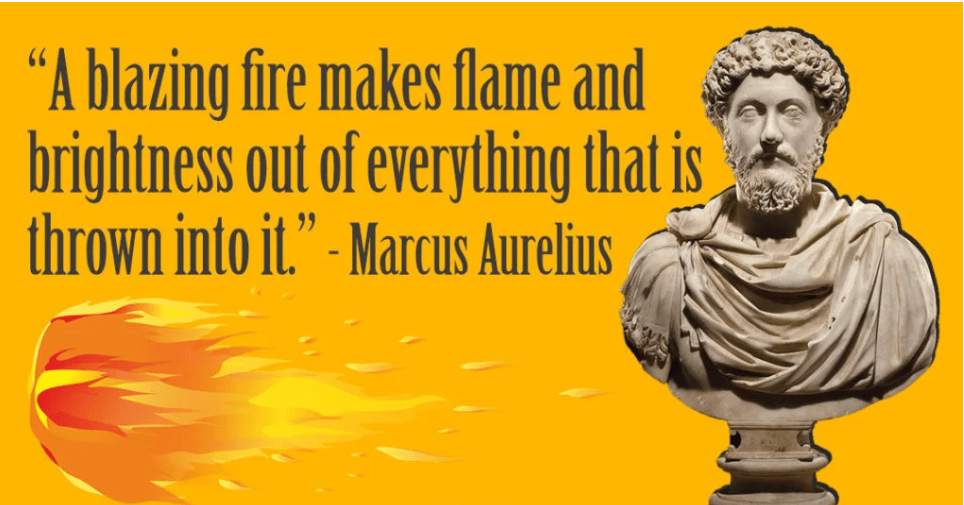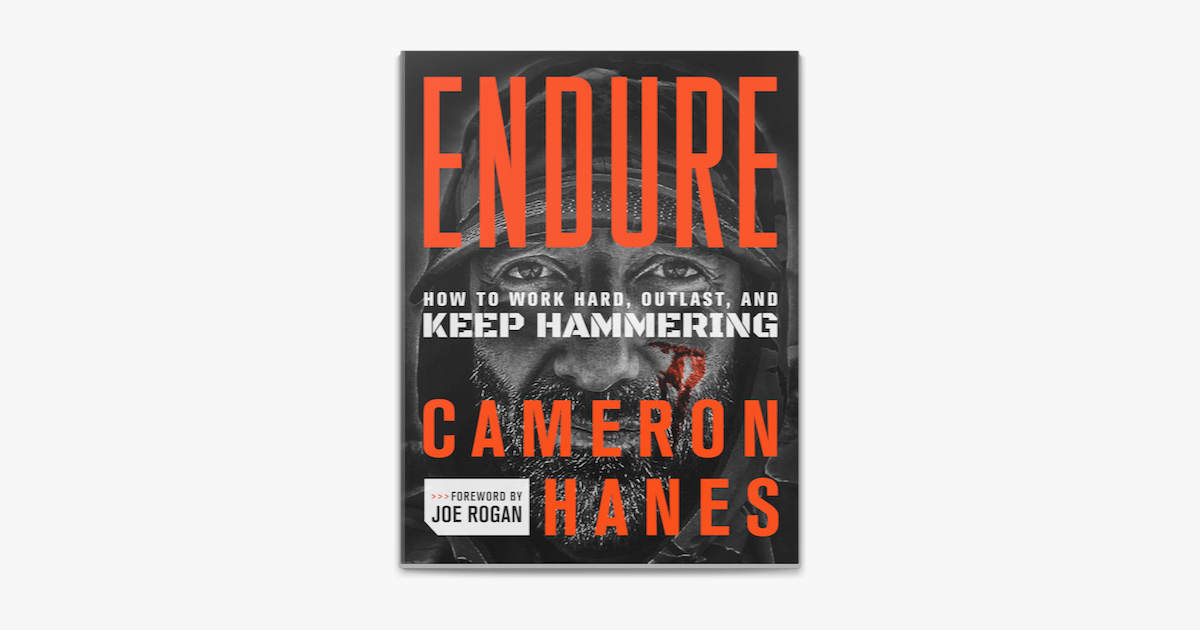
Volume 038
"My greatest successes have come from doing the obvious things that others can also do, but choose not to" - Cameron Hanes
Can you believe there are only two more months left in the year? In just over 60 days we’ll all collectively be back at the whiteboard again, finalizing our aspirations for the upcoming year.
I learned a lot about myself in this year’s set of goals. I set out to go sub-3 hours in the marathon, and failed very publicly. I learned more from that day about rebounding and resilience than I think I ever would have hitting it, and I gained confidence in my belief that I will 100% beat that goal sooner than later.
I wrote down that I wanted to start a newsletter this year. No other context than that. This concept had been in my head a while, and looking back right now on 38 weeks of getting this thing drafted and published has me extremely thankful I decided to just go ahead and start and get that first one out.
Through the rest of my physical and professional goals, I feel like I have reaffirmed some ambitions and beliefs about what I want to accomplish over the next few years.
My goal this year is to go into 2025 with momentum on all fronts, and I hope you will consider doing the same. Imagine how much easier it would be to lose 25 pounds next year if you lost 5 over the next 60 days? Or how many books you would be able to read next year if you just engrained the habit of reading a couple of pages a day right now? What if instead of a complete lifestyle and diet 180 on January 1, you slowly introduced and removed things from your life that you plan to ramp up come the new year?
It’s easier to reach full speed from a jogging state than from a standstill. Let’s get the proverbial snowball rolling down our hill.
Superset of the Week:
Brain - The Event is Objective, Our Reaction is Subjective

I could read 1000 books and listen to 1000 podcasts, and there would be plenty to gain from doing so. At the end of the day though, the ideas and actions I am often looking for tend to be a fairly similar collection, just presented in different messages and forms. In other words, I consume a lot of content, but I still find myself reverting back to a small core of ideas and actions that I know work for me when I am doing my best work at this life game.
One of those philosophies is the cornerstone of Stoicism, which continues to be engrained through Ryan Holiday’s work on the subject. A reframing of one of his messages this week was a timely reminder for myself of the power of being able to manage one’s own emotions. The passage was this:
“The core of stoicism is the idea that the question of whether something is fortunate or unfortunate is a a choice that we get to make. The event is objective. It is what it is. And then we decide what it means to us, and we decide what we’re going to do about it.”
Ryan goes on with a quote from Marcus Aurelius in his book, Meditations: “Our actions may be impeded…but there can be no impeding our intentions or dispositions. Because we can accommodate and adapt. The mind adapts and converts its own purposes the obstacle to our acting.”
Meaning that of course as we live ambitious lives, obstacles will be presented in our way. The beauty of being a human being is that we have the power and freedom to make the conscious choice of how we act to the obstacle, or how we accommodate and adapt to its presence.
We can complain, pout, mope, talk about how unfair life is - or we can adapt, overcome, and identify the obstacle for what is, an obstruction in the road. “The impediment to action advances actions. What stands in the way becomes the way.”
Be honest with yourself - How many times has something happened in your life where your emotions ended up making the situation worse? Hopefully on the other side of the coin too, there are some moments you can fondly look back upon where you avoided letting the fog of emotion cloud your judgment or slow down your forward progress.
The concept is another example of the foundation of the Parable of the Chinese Farmer - things happen to us, we decide how good or bad they are. You woke up today - you decide if that’s a thing worth celebrating. You fell short of a goal at work - you decide what your immediate next action is. A family member wronged you - you decide whether you hold on to that or seek to repair the damage. The action after is always our most important tool. Don’t let emotions get in the way -
Body - ChatGPT Prompts for Your Fitness Goals

If we learned anything from the age of the internet, and the following age of social media, it’s that those on the front end of the adoption curve stand to be the ones with the most gain. AI and these learning tools are still so fresh and new that some have and will continue to discount their practicality and use. In an aim to avoid being part of the group, I have started to do some researching and trialing on how I can put these tools to use myself. The first and most obvious realm was fitness - How could this be useful to myself and the masses?
If you are a beginner with ChatGPT, but interested in what it could do to quick start your self-transformation stage, look to the following prompts to get quick, actionable ideas on getting in shape heading into 2025:
Diet Plan Help
Ask Chat GPT the following: “Provide me a 7-day meal plan template aiming to lose fat but keep muscle, including protein-rich meal suggestions and snack options, considering a 3 meals and 1 snack per day structure. I weigh “x” and would like to lose “x” pounds in “x” months. I want to consume “x” grams of protein”
(You can include sentences like “please avoid “x” food, include “x” food, add more variety, etc.)
Motivation Help
Ask ChatGPT: “List five unique motivational strategies I can use to encourage myself when I start to lose my workout motivation, including any relevant success stories or quotes.”
Gym Plan Help:
Ask ChatGPT: “You are an expert fitness coach. I am a client wanting to lose “x” pounds in “x” months.. Create a customized weekly workout plan for a [describe your age] year-old [specify gender] who aims to [state your fitness goal, e.g., lose weight, gain muscle, improve endurance]. I’m available to workout [mention number of days] days per week and have access to [specify equipment or no equipment]. I want you to [mention how you want the output in detail with examples].
Stretching & Recovery
Ask ChatGPT: “Create a post-workout recovery and stretching routine for someone who engages in running and weight lifting, focusing on reducing muscle soreness.”
These are just four ideas to hopefully get your wheels spinning on what practical uses you are missing out on with AI. Play with the questions this week. Ask it follow-up questions like “exclude this”, “can you be more specific”, etc. It’s a fun exercise to go through, no pun intended.
Book - “Endure” by Cameron Hanes

I revisited the well that is Cameron Hanes this week as I sought for some good quotes and favorite passages to get seriously focused on closing out this year as strongly as I can. The lessons and concepts presented through this book in doing hard shit always seem to stick out and land when I need them to.
As I made my pass through this week again, these ones were the few that struck the chords I was searching for:
“Train for misery and embrace the pain. This is my approach, because you know you’ll experience it in the mountains. I want to find my limits.”
“The mind powers the body, and once the mind says we want to do it, then the body will follow.”
“Not only did Lance train hard but he also was one of the fiercest competitors ever. After winning his fifth Tour de France in 2003, he defiantly said, “No one trains like me. No one rides like me. This jersey’s mine. I live for this jersey. It’s my life. No one’s taking it away from me. This f***** jersey’s mine.” Lance didn’t just visualize success. He also visualized crushing his competitors. I respect that mindset.”
“I don’t give answers; I take action. I’m not trying to educate; I’m leading by example. I don’t talk about tomorrow; I live out today. I don’t know the end result, but I promise you one thing. I know how to endure the race.”
“Mediocrity feels so f****g good!” Goggins posted. “If you wake up and don’t want to work out, all you have to say is ‘F*** it, I don’t give a shit!’ And if you’re mediocre, you are probably hanging around other mediocre people, so they are happy that you don’t add pressure to their life! One big happy soft-ass family!!! People don’t like hanging around that MF who makes them feel uncomfortable or like an underachiever on a regular basis! We stay away from the savage who wakes up at 0330 regardless the weather, if they got a good night’s sleep, if their life sucks and times are hard. People stay clear of that cat! Those kind of people make you question yourself. They also let you know where your life ends and their life begins!”
Cameron Hanes brought Keep Hammering into my life. This book is the foundation of why that saying carries so much weight. A read I highly recommend -
Breakthrough of the Week - Air Fryer Sweet Potato Fries
If I find a healthy recipe that I can comfortably enjoy within my diet plan, but that feels like cheating - I tend to groove it immediately into my (likely daily) meal plan. That current recipe is grabbing sweet potatoes at the store, dicing them up in fry shape, and throwing them in the air fryer.
By not adding any additional calories (only salting mine and adding some light olive oil), I am able to enjoy what feels like a snack, but is also a whole food, healthy carb source to even out my nutrition plan and make it easier to stick to.
Check out the recipe for yourself here. There are plenty out there, so don’t be afraid to spice them up a bit if it fits your macros.